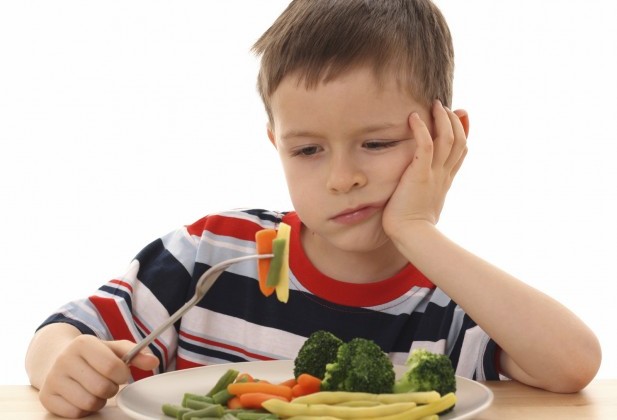In this day an age of food abundance and cheap junk food, many of us…
When Kids Won’t Eat Dinner

Perhaps the greatest battle we have with our children takes place at the dinner table. Getting food on the dinner table day-in and day-out is no small feat, so when a child refuses the fruits of your labor, it’s enough to make you want to throw in your apron.
The question is what to do? Too often these kitchen skirmishes end with yelling and bed without dinner. It’s not easy, but here are few strategies that might improve your dinner routine.
Give a Heads Up: Ten to 15 minutes before mealtime, tell your child that it will be time to eat soon. Children may be so tired or excited from the day’s activities that they don’t feel like eating. Letting your child know that it is almost time for a meal will give them a chance to settle down before eating.
Take Emotions out of Mealtime: This is tricky. The more matter-of-fact and less emotional you can be around meals, the better. That is, don’t take it personally. Working yourself up can breed anxiety and lead to dinner table battles that you don’t want to wage. Try to stay calm and measured concerning mealtime issues.
Cook what You Love: Because we try to make everything revolve around what our kids want, it’s hard to make this shift. When you’re planning meals, try not to think exclusively about the kids. Cooking meals that you enjoy might make it easier to deal with when kids pass on dinner. Over time, most kids will fall in line with what you enjoy cooking and eating.
Make Manners a MUST: Kids are entitled to their opinion, but should be polite about it. They can express their feelings with a simple “No thank you,” as opposed to spouting “Yuck” and pushing their plate off the table. Banish negative comments from the table to spare the cook’s feelings and because opinions are highly contagious. If one sibling rejects something out of hand, it can impact another.
Don’t be a Short-order Cook: If your child doesn’t like what’s being served, resist the urge to fix something else. This can be difficult because we worry whether our child is getting enough to eat. Don’t worry if it seems that your child doesn’t eat enough at one meal. Children often make up for a small meal or a missed meal at the next mealtime. If your child has plenty of energy and is growing, he or she is most likely healthy. On a side note, it’s a good idea to have a few dishes on the table so if they refuse one food, they have options.
Be a Role Model: Children watch us and will imitate our habits. Setting a good example for your child goes a long way towards helping them develop good eating habits. If your child sees you eating a variety of healthy foods, he or she will be more likely to give them a try.
Don’t Give Up Just because your child doesn’t enjoy a meal on one occasion, doesn’t mean it needs to be permanently struck from your repertoire. It often takes multiple tries to warm up to new foods. But try to let your child explore new foods on his or her own.



